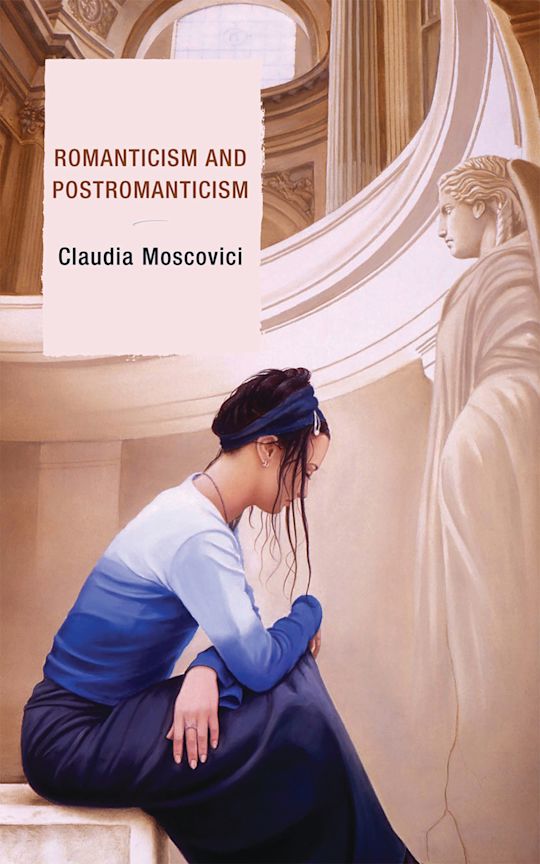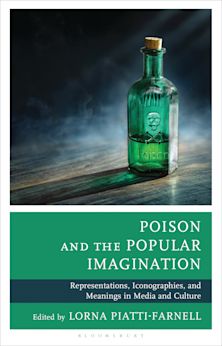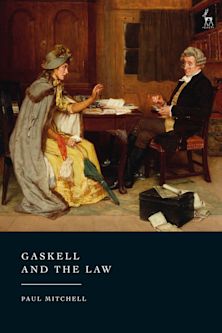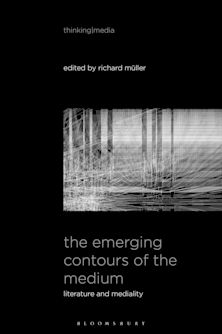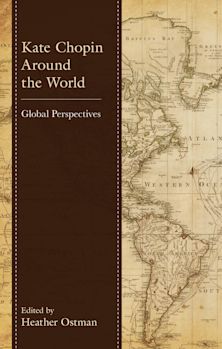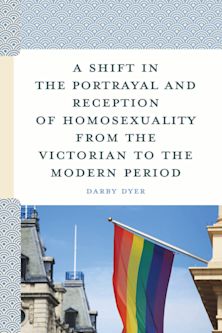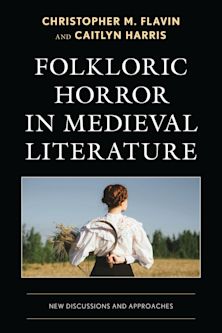- Home
- ACADEMIC
- Literary Studies
- Literary Studies - Other
- Romanticism and Postromanticism
Romanticism and Postromanticism
This product is usually dispatched within 1 week
- Delivery and returns info
-
Free US delivery on orders $35 or over
You must sign in to add this item to your wishlist. Please sign in or create an account
Description
Claudia Moscovici asserts in Romanticism and Postromanticism that the Romantic heritage, far from being important only in a historical sense, has philosophical relevance and value for contemporary art and culture. With an emphasis on artistic tradition as a continuing source of inspiration and innovation, she touches upon each main branch of philosophy: aesthetics, epistemology, and ethics. The book begins by describing some of the most interesting features of the Romantic movement that still fuel our culture. It then addresses the question: How did an artistic movement whose focus was emotive expression change into a quest for formal experimentation? And finally, Moscovici considers the aesthetic philosophy of postromanticism by thinking through how the Romantic emphasis upon beauty and passion can be combined with the modern and postmodern emphasis on originality and experimentation.
Table of Contents
Chapter 2 A Kiss Sent by Mail: The Expression of Passion in Rousseau's Julie, ou La Nouvelle Heloise
Chapter 3 Between Two Worlds: Germaine de Stael's De L'Allemagne
Chapter 4 Lucidity and Passion in Diderot's Aesthetics
Chapter 5 Romantic Aesthetics: Wordsworth and Baudelaire
Chapter 6 Aesthetics after Romanticism: On Originality, Individuality, and Autonomy in Art
Chapter 7 A Sketch of Postromanticism
Chapter 8 The Postromantic Manifesto
Chapter 9 Postromantic Artists (postromanticism)
Product details
| Published | Feb 09 2007 |
|---|---|
| Format | Hardback |
| Edition | 1st |
| Extent | 134 |
| ISBN | 9780739116746 |
| Imprint | Lexington Books |
| Dimensions | 9 x 6 inches |
| Publisher | Bloomsbury Publishing |
About the contributors
Reviews
-
Addressing both a revolution in esthetics and an important development in the history of thought, Claudia Moscovici argues that in its break from the Enlightenment, Romanticism promoted core values such as verisimilitude, expressivity, and sensuality, that have become an important postromantic opposition - in our contemporary visual arts, especially - to Modernism and postmodernism. The discussion is fresh and engaging.
Marshall C. Olds, Willa Cather Professor and Professor of Modern Languages, University of Nebraska
-
In Romanticism and Postromanticism, Claudia Moscovici writes that "art criticism, like philosophy, like love itself, depends upon cultivating a lucid passion." This book, which brings a breath of fresh air to the study of enduring themes, is the lucid, engaging result of Moscovici's own passion for literature, philosophy, and art. And it is much more, an enthusiastic appeal to eize the day, to live life to the fullest, complete with a manifesto and a roster of artists who epitomize the aspirations of the postromantic movement.
William C. Carter, Distinguished Professor of French, University of Alabama at Birmingham
-
Claudia Moscovici is a historian of ideas, astute reader of literature, and sensitive interpreter of art. Her unusual, original book, vividly written, solidly researched, is both academically sound and passionately committed. Lucid chapters on Rousseau, Mme de Staël, Diderot, Wordsworth and Baudelaire define the aesthetics, ethics, and epistemology of the movement she calls postromanticism, alive today. Exciting to read.
Edward K. Kaplan, Kaiserman Professor in the Humanities, Brandeis University








